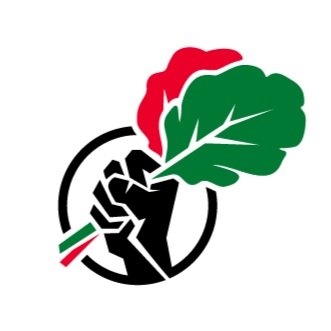
At the core of NBFJA's mission is the acknowledgment of policy's pivotal role in driving enduring change. While our primary focus is on world building, we also recognize the importance of engaging with existing systems that are accountable to us. Therefore, advocating for policies that uphold and empower Black communities becomes integral to advancing our strategies and ensuring meaningful change.
Policy Table
Through our Policy Table, we forge a cohesive framework that empowers NBFJA to provide policy support, engage in collaborative decision-making, and align with local, regional, state, and international food policy initiatives. By leveraging collective efforts and amplifying our shared vision, the Policy Table enables us to champion policy priorities, advocate for structural transformation, and cultivate deeper awareness and agency among our members. Together, we strive to uplift our communities, defend our collective demands, and drive forward the transformative agenda of Black food sovereignty and justice.
Our Goals:
Develop policy priorities uplifting our collective demands and defending our communities at the national, regional, state and local levels.
Grow member agency and awareness around policy, and deepen our collective understanding.
Coordinate the voice of radical Black farmers and food systems organizations to amplify demands for structural change.
Justice for Black Farmers Act
We have been and continue to be very concerned by the consistent, glaring, and very violent assault on small farmers, Black farmers, Indigenous farmers, and the right to self-determination in this country.
During the Summer of 2020, members of the National Black Food and Justice Alliance engaged in conversations with U.S. Senators Cory Booker (D-NJ) and Elizabeth Warren’s (D-MA) teams about what kind of legislation would be meaningful for Black farmers. Amid uprisings against state-sanctioned police violence, we engaged in numerous conversations about the history of discrimination, displacement, and other forms of violence against Black communities, particularly Black farmers. On November 19th, 2020, Senators Booker, Warren, and Kirsten Gillibrand (D-NY) announced landmark legislation aimed at addressing and correcting historic discrimination within the U.S. Department of Agriculture (USDA). Prejudicial federal farm assistance and lending patterns have caused Black farmers to lose millions of acres and robbed Black farmers and their families of billions of dollars of inter-generational wealth.
In just the last century, Black farmers have lost more than 12 million acres of farmland and the number of Black farmers has dwindled from 1 million to 45,500, according to the 2017 agricultural census. Today, Black farmers represent only one percent. The proposed legislation, the Justice for Black Farmers Act (S.300), intends to enact policies to end discrimination within the USDA, protect remaining Black farmers from losing their land, provide land grants to create a new generation of Black farmers and restore the land base that has been lost, and implement systemic reforms to help family farmers across the United States.
Our contributions to the Justice for Black Farmers Act have been rooted in the wisdom of lessons from past failures and an investment in steps towards a radical reclamation of what we know our communities need and deserve. Educating the legislative team about historical and continued violence was important, but so too was naming our own solutions. Therefore, so much of what you see in this legislation was named by us, including our members. We all worked collaboratively with input from HEAL Food Alliance, and we also pointed the legislative drafting team to talk to some of our other patterns and comrades in the field. What resulted in these drafts is something we continue to be very proud of and hopeful for.
Stephen Crowley/The New York Times
Policy has historically been and often continues to be unapologetically anti-Black and anti-Indigenous, so we must be unapologetic in our demands to name legislation that directly counters the racialized violence against our communities. We are very pleased with and excited about the outcomes of the Justice for Black Farmers Act. And we acknowledge that it does not explicitly address the harm and land theft of Indigenous communities who have protected and stewarded this land for millennia preceding colonization.
How to Support
If your organization would like to endorse the Justice for Black Farmers Act:

NBFJA FARM BILL DEMANDS
At the National Black Food & Justice Alliance, we understand policy interventions as a necessary strategy to engage in areas that have real, concrete implications for the material conditions of our communities. The Farm Bill is undoubtedly one of the largest and most important pieces of legislation that impacts the ways our communities are able to access and feed ourselves.
With this in mind, the National Black Food & Justice Alliance has identified 4 key demands for the 2024 Farm Bill that are aligned with our goals of Black food sovereignty and liberation.
Read Our Key Demands
Please email questions or requests regarding our policy work to BLP & SDFE Project Manager, Renee Smith-Nickelson at renee@blackfoodjustice.org







